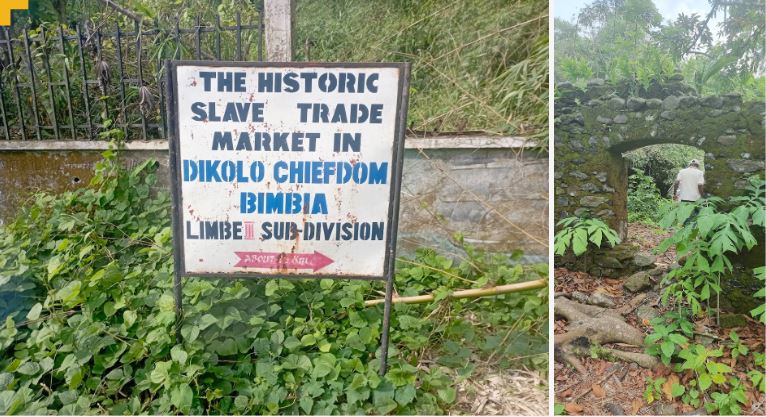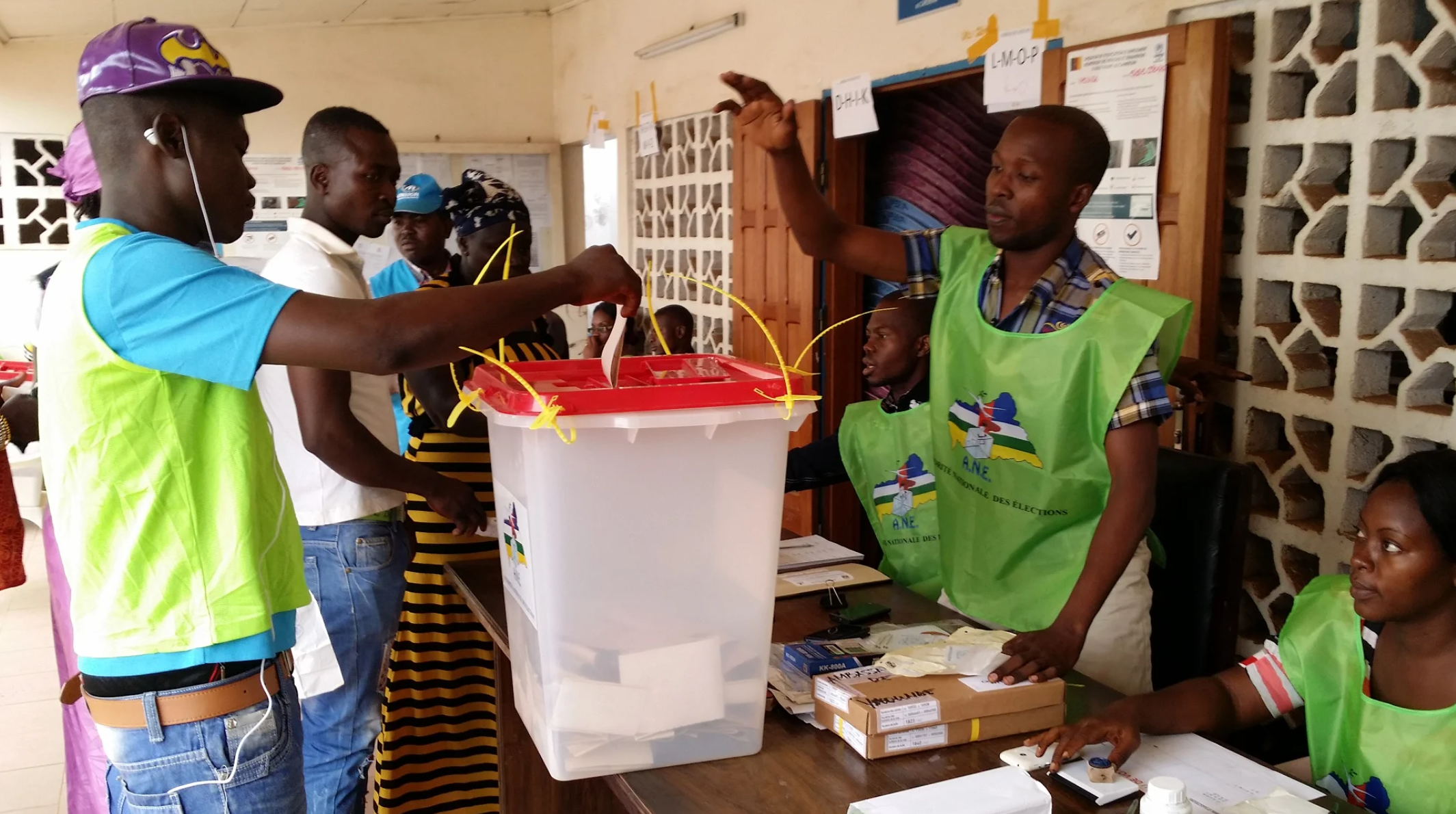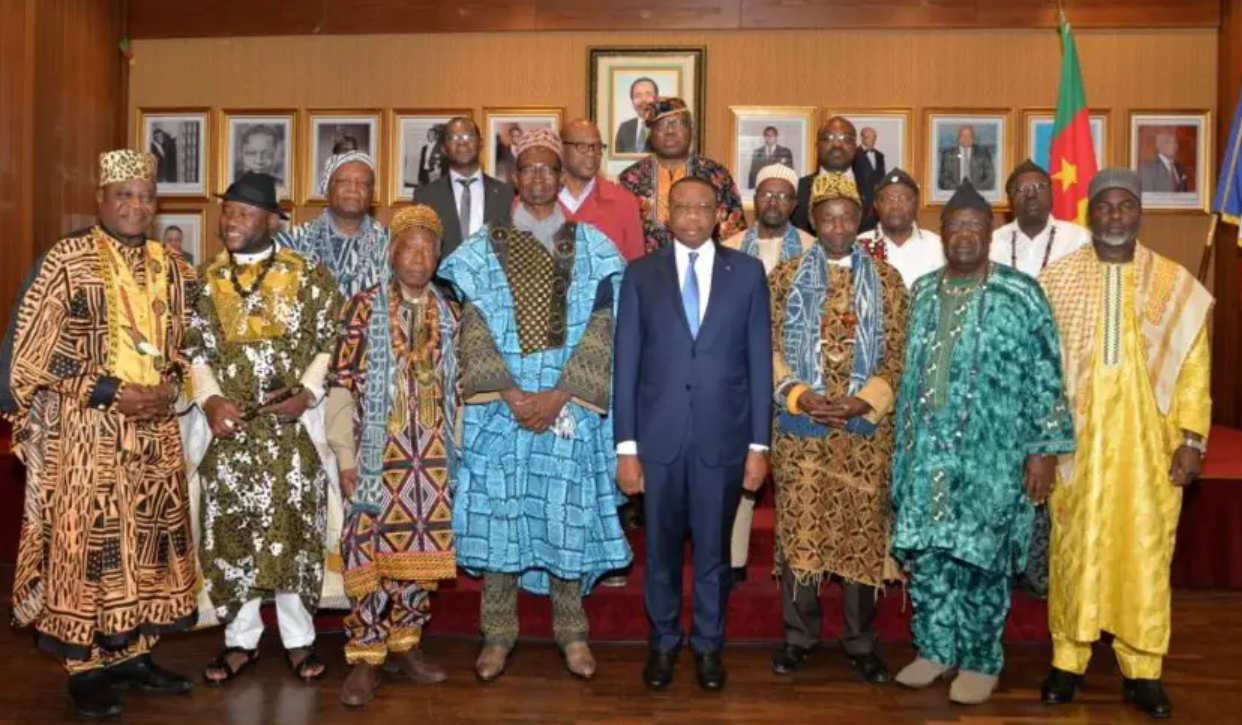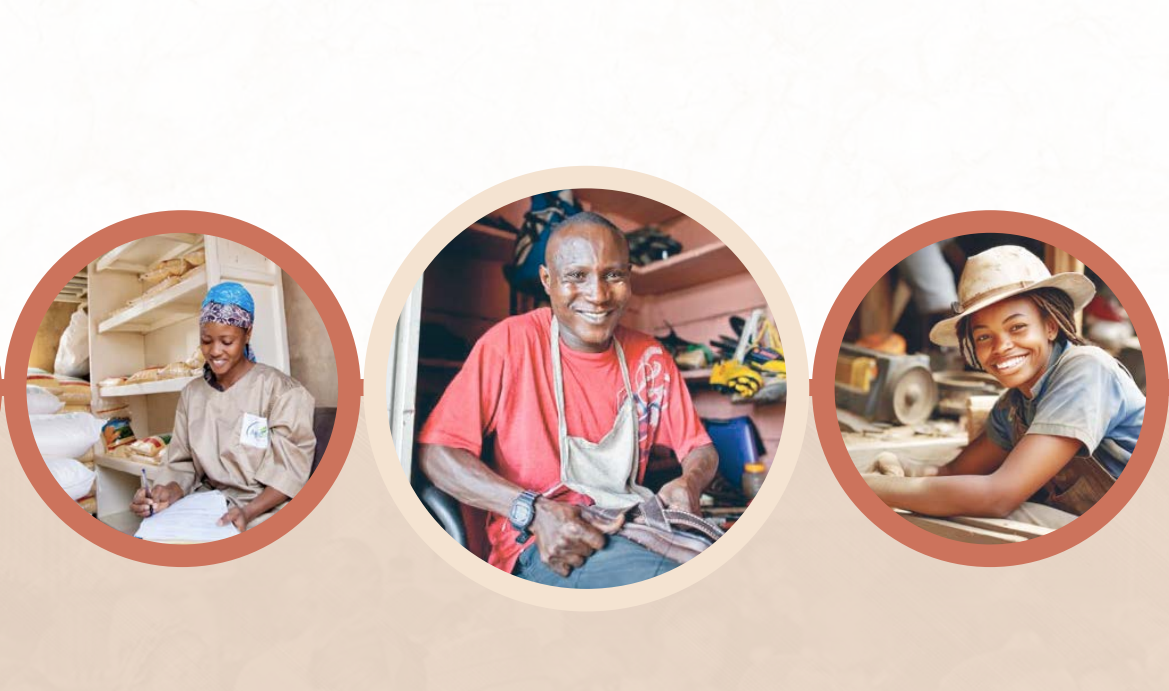By Francis Tazoacha & Dr Delmas Tsafack (Download pdf)
Revisiting Free Trade in the Bimbia During the Precolonial Era from an Oral Perspective
In early January 2023, a team of the Nkafu Policy Institute visited Bimbia and met Chief Samuel Epupa Ekum, chief of Dikolo in Bimbia. From the discussion, it emerges that the slave trade, even though it was illicit, was a free trade. This history of free trade in Bimbia in the precolonial era may inspire the African Continental Free Trade Area (AfCFTA), one of the 13 flagship projects of Agenda 2063, as it presents how to trade in precolonial Africa was conducted freely with no or fewer barriers. After the signature of the Duala-German treaty signed in 1884, Bimbia was annexed by the Germans and incorporated into the protectorate of Kamerun. It lies in Southwest Region, to the south of Mount Cameroon and the west of the Wouri estuary. The predominant Isubu oral history holds that the ethnic group hails from Mboko, the area situated in the southwest of Mount Cameroon. Today, Bimbia is a small locality in Limbe 3 Subdivision in the Fako Division of the Southwest Region, Cameroon. Bimbia consists of three villages namely: Dikolo, Bona Ngombe, and Bona Bille. Bimbia was the first place where Europeans, Jamaican and English Baptist missionaries led by Rev. Alfred Saker set foot on the Cameroon shores in 1858, from Fernando Po (Bioko). Bimbia has been famous in the pre-colonial era as a trading hub; especially as far as the slave trade was concerned. According to Chief Samuel Epupa Ekum, Bimbia was an independent state of the Isubu people of Cameroon.
Because of the geo-strategic location of Bimbia, the locality became an important center; it was a trading hotspot in the precolonial period. Trade during that period was reciprocal traffic, exchange, or movement of materials or goods through peaceful human agency. Trade was free. Initially, trade and exchange facilitated the direct or indirect transfer of ownership of goods or services from one individual, group, or community to another in exchange for other commodities, known as barter and no barriers were hampering it. It was not a surprise, that this trade was rarely seen traditionally not as a form of trade.
The first Europeans who arrived in the 1400s on the coast of West Africa, Bimbia inclusive, were in search of goods. During the pre-colonial period, the trading commodities were slaves and later goods. The Bimbia used to catch some non-natives and sell them as slaves to the Spanish ships that came to Bimbia but never landed because they were afraid of the natives whom they termed “savages”. The slave trade becoming lucrative, the Bimbians went I nto the hinterlands and picked up non-indigenous people, which they brought to Bimbia and sold to the interdiameries who sold them to Europeans staying in Bioko (Fernando Po), Equatorial Guinea. From Bioko, the slaves were transported to the Americas to work on the plantations. These human beings (slaves) were exchanged for mirrors, ceramics, tobacco, hurricane lamps, pieces of cloth, etc.
By the 16th century, the Isubu was second only to the Duala in trade. The principal trading partners were the Portuguese, Spaniards, Greeks, Germans, French, and English who came for raw materials like gold, iron, copper, and other minerals. These goods were bartered for pieces of cloth, ceramics, hurricane lamps, tobacco, mirrors, etc. Unlike contemporary, the precolonial trade in Bimbia had no barriers. It was free trade. The earliest Isubu merchants were likely tribal chiefs or headmen. Bimbia, the primary Isubu settlement, grew quickly. According to Chief Samuel Epupa Ekum of Dikolo, Bimbia, European traders cooperated with friendly chiefs against their contenders, flattering them with titles such as “King, Prince, or Chief”. In exchange, these indigents offered trade monopolies to their patrons and sometimes ceded land. An Isubu chief named Bile became the leader of the Isubu as King William, although Dick Merchant of Dikolo village and other chiefs eventually opposed his dominance.
Isubu society was changed fundamentally by European free trade. European goods became status symbols, and some rulers appointed Western traders and missionaries as advisors. The Chief further emphasised that as a result of the free trade, a greater number of Isubu people became wealthy, leading to rising class tensions. For example,his great grand father was one of such rich people who benefited from the trade. Competition intensified between coastal groups and even between related settlements. He further mentioned that between 1855 and 1879, the Isubu alone engaged in at least four conflicts, both internal and with rival ethnic groups. Traders exploited this atmosphere and beginning in 1860, German, French, and Spanish merchants established contacts and weakened the British monopoly.
Apart from the intercontinental (Europeans) trade with the Bimbians, there was also regional trade where the people of Bimbia traded with the Nigerians, Ghanaian and Beninese traders from West Africa. Just like the trade with the Europeans, the trade was bartered and free with no barriers. While trade and embedded exchange were often disorganized, they too could be organized and institutionalized with permanent or shifting distribution and redistribution centers such as markets. The itinerary, which involved traders moving from area to area to trade, was also a well-developed system of trading and exchange by different groups in parts of Africa.
When compared to purely commercial trade, barter was much broader and included the reciprocal exchange of goods through mechanisms such as gifts, tribute payments, piracy, brigandage, and even marriage alliances. As with trade, barter also involved direct or indirect contact, migration, political conquest, and much more. Barter, a free trade system that saw the direct exchange of goods and services for other goods and services without the use of a medium of exchange such as currency, was the earliest form of trade and exchange.






Leave A Comment